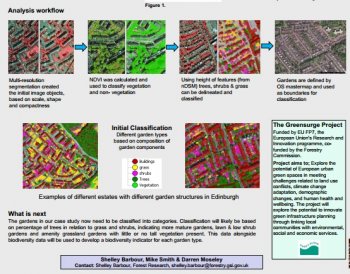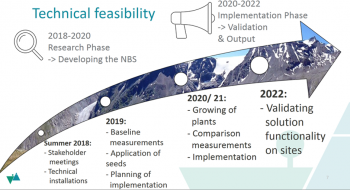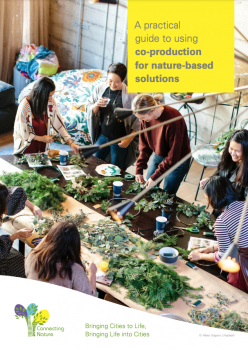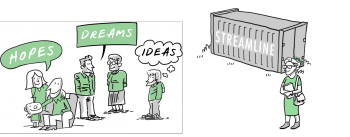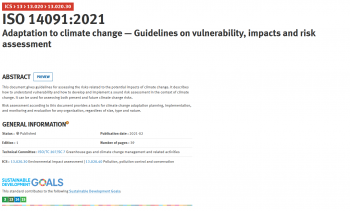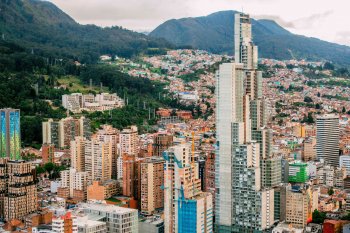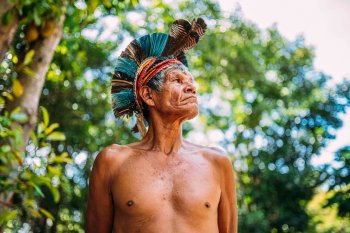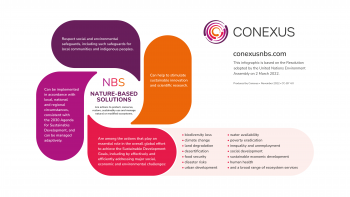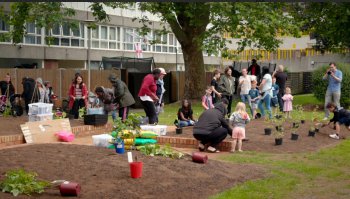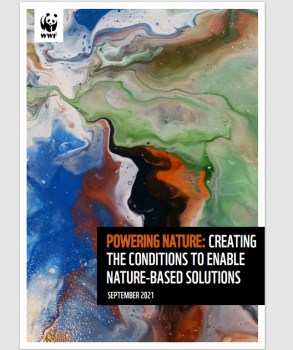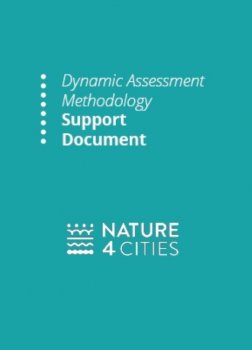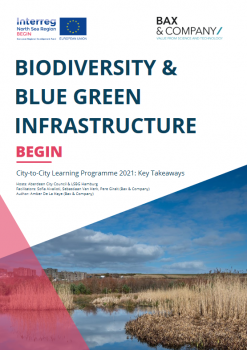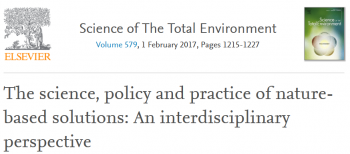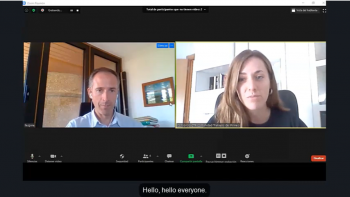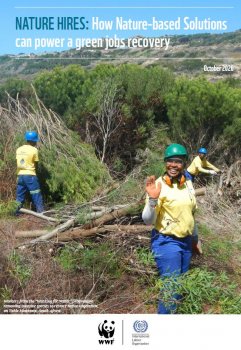Marketplace
Using Object Based Image analysis to delineate garden structures in an urban environment
The accurate identification of greenspace typologies enables assessment of the contribution that urban greenspaces make to biodiversity, improving peoples well-being and the green economy, a focus of the EU FP7 project GREENSURGE. It has been shown that the conventional pixel by pixel
Kaunertal Valley field study - microbial assisted local seed mixtures to mitigate erosion on slopes
This video contains a visual explanation of the research work in Kaunertal Valley in the framework of the EU horizon 2020 PHUSICOS Project (PHUSICOS – ‘according to nature' solutions to reduce risks in mountain landscapes). Goal is to develop a height adapted and microbial assisted local seed
A practical guide to using co-production for nature-based solutions
This guidebook offers a practical approach and toolbox for designing and implementing your own co-production processes. It presents co-production as a new governance approach for working on nature-based solutions in cities and offers a practical framework for designing your own co-production
STREAMLINE
STREAMLINE is a new format for semi-structured, one-on-one interviews. In its current form STREAMLINE consists of a set of colorful, laminated A3 canvasses. Set in the future, each canvas invites the interviewee to set out their vision on a particular topic through a series of questions and tiles.
ISO 14091:2021 Adaptation to climate change — Guidelines on vulnerability, impacts and risk assessment
This document gives guidelines for assessing the risks related to the potential impacts of climate change. It describes how to understand vulnerability and how to develop and implement a sound risk assessment in the context of climate change. It can be used for assessing both present and future
The Economic Value of Nature-Based Solutions in European Cities
Cities and regional governments are making critical contributions to sustainability and climate change, and are key sites of achieving the aims of the Convention on Biodiversity and the Green New Deal. This study demonstrates the economic value of nature-based solutions throughout Europe, in order
Conexus key learning factsheet series - Skills Gaps for Nature-based Solutions uptake in Europe and Latin America
Skill gaps hindering the implementation of Nature-based Solutions (NbS) are often pointed out as a challenge to larger scale NbS uptake. This factsheet presents the findings and key messages of an explorative study on skills and competence gaps among NbS professionals. Moreover, it introduces the
Bridging Worlds: Decolonising Nature-Based Solutions Education
This essay embarks on a transformative journey, exploring the integration of decolonial approaches into Nature-based Solutions (NbS) professional education. It delves into the rich tapestry of indigenous, local, and marginalized knowledge systems, challenging the colonial underpinnings that have
Nature-based solutions definition infographics II
The adoption of the globally agreed definition of nature-based solutions by the UN Environment Assembly in March 2022 was a great boost to international collaboration. It placed the focus sharply on accelerating the implementation of nature-based solutions to tackle societal challenges. To help
Video: Unveiling of new edible garden in South Thamesmead, London
With the help of input and design ideas from local residents, CLEVER City London, alongside Peabody and its appointed design partner, muf architecture/art, has successfully delivered its first Nature-based Solution: an edible garden in South Thamesmead. To celebrate, the CLEVER Cities team
Powering Nature: creating the conditions to enable nature-based solutions
Nature is in freefall. Climate is changing due to humanity’s addiction to burning fossil fuels and converting natural ecosystems for agriculture. This affects in degrading once-productive lands and driving plant and animal species to extinction. And it’s no coincidence that millions of people each
- Document
- Guidance
Nature4Cities - Step-by-step guide
The Step-by-Step Guide helps with the planning and preparation for NbS, to manage the complexities involved, to coordinate the work with multiple actors (experts, researchers, stakeholders and citizens) and to reflect on and monitor the whole process. The steps help create a framework for
Nature4Cities - NbS Dynamic Assessment Methodology Support Document
The evaluation of the environmental benefits of NbS is one of the key solutions paving the way for resilient cities, and to strengthen urban planning strategies. A strong need of new governance, business, financing models and economic impact assessment tools for sustainable cities with NbS (urban
Biodiversity an Blue Green Infrastructure for Health; key takeaways from BEGIN city-2-city learning programme
A report containing key takeaways on using blue and green infrastructure to bolster health, from the city-to-city learning programme conducted under the EU Interreg funded BEGIN programme in 2021.
The science, policy and practice of nature-based solutions: An interdisciplinary perspective
In this paper, they reflect on the implications for science, policy and practice of the recently introduced concept of Nature-Based Solutions (NbS), with a focus on the European context. First, they analyse NbS in relation to similar concepts, and reflect on its relationship to sustainability as an
- Document
Mapping of forest roads to support touristic activities
OG SURF has mapped the existing roads in its test areas using GNSS receivers and classified them based on their functionality, and identifying any maintenance issues, a prerequisite for identifying additional roads/trials to be opened in the forest.
BiodivERsA Stakeholder Engagement Handbook
The BiodivERsA Stakeholder Engagement Handbook is a practical guide designed to assist research teams identify relevant stakeholders to engage with in order to enhance the impact and social relevance of their work. The Handbook draws upon exiting literature and presents case studies that provide
Forêt de Capet case study
Presentación del estudio de caso PHUSICOS : Forêt de Capet / Présentation de l'étude de cas PHUSICOS : Forêt de Capet
- Document
Group Certification for Sustainable Forest Management: Promoting Shared Forest Management and Ecosystem Services Enhancement
This certification is proof of the possibility of overcoming territorial fragmentation for a common objective by uniting public and private forces.
NATURE HIRES: How Nature-based Solutions can power a green jobs recovery
Nature Hires: How Nature-Based Solutions Can Power A Green Jobs Recovery, published today, confirms the potential of Nature-based Solutions to provide job-intense economic recovery while having a multiplier effect in achieving the Sustainable Development Goals. As we entered 2020, the dual global
- ‹ previous
- 10 of 55
- next ›

